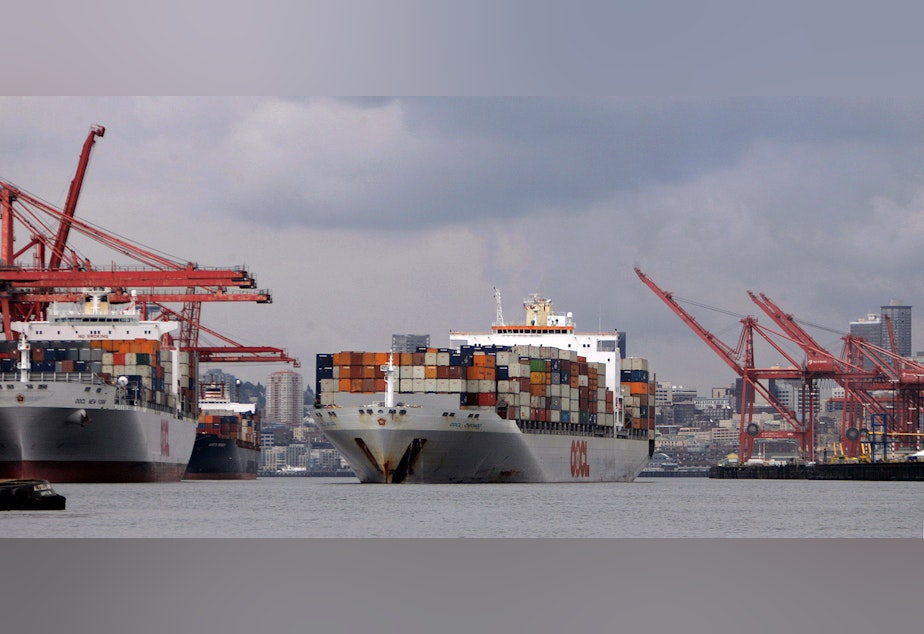Hear it again: Congress looks to fix supply chain kinks, including in the Northwest

The Pacific Northwest, like the rest of the world, is dealing with supply chain issues.
An increased demand for foreign goods, combined with a worker shortage, and a lack of port terminals and shipping containers is making it more expensive and time-consuming to move products.
Congress just took a step aimed at ironing out one slice of that mess: It’s The Ocean Shipping Reform Act - a bill that passed with bipartisan support yesterday in the House of Representatives, and is now heading to the President's desk.
Anderson Hay and Grain in Ellensburg grows hay — as you might expect. Around 80% of the company's sales come from the export market, shipping hay around the world to feed cows, horses, and other livestock.
But in recent years, that’s gotten harder.
"A lot of priority has been given to ship empty containers back to Asia quickly," said Mark Anderson, the CEO of Anderson hay. "It's still incredibly profitable for the carriers, even if they're anchored, waiting in line to get unloaded. So that's been incredibly unusual and difficult."
Last year, the Port of Seattle saw a 126% increase in wait times for ships.
That situation means goods being imported into the US are coming in at a slower pace and are more expensive. Agriculture exporters like Anderson are facing price hikes and shipping companies that don’t want to load their containers with more expensive exports.
Sponsored
Anderson said the cost of shipping has, in some cases, doubled for him within the last five years. Other companies just aren’t shipping to where his customers are anymore.
"We've worked for years to develop a lot of these markets," Anderson said. "And to not be able to service them competitively is really difficult."
Congress has proposed a fix for the exporting problems people like Anderson are facing: A new law called the Ocean Shipping Reform Act.
The law would boost the authority of the Federal Maritime Commission by giving the agency more regulatory power. It would also restrict shipping companies' ability to send empty containers to other countries to be refilled, allowing American exporters to be more competitive in the international market.
A version of the bill passed with bipartisan support in the Senate last week, and similar legislation passed in the House last year. Once the differences in those bills are hammered out, it's expected to eventually wind up on the President’s desk to be passed into law.
Sponsored
"Right now, the supply chain isn't working," said U.S. Senator Maria Cantwell (D-WA) on the Senate floor. "Our ports have been clogged, shipping companies have struggled to keep up with demand, and the costs of American exporters, who are trying to get hay, milk, and apples to the global market, have gone through the roof."
But opponents say that the bill won't ease the supply chain crunch.
The World Shipping Council, which represents the ocean shipping liner industry, argues that the law threatens to "make existing congestion worse."
The groups said Congress should be “making investment in port infrastructure" instead.
Sen. Cantwell said that the government is already making that investment through the infrastructure bill, which was signed into law in November.
Sponsored
US politicians maintain the Ocean Shipping Reform Act is going to help solve our supply chain issues. Meanwhile, the World Shipping Council says the proposed law won’t solve the real problems the industry is facing.
So, who’s right?
Everyone, and no one, said Bindiya Vakil. Vakil is the CEO and cofounder of Resilinc, which provides supply chain monitoring, resilience mitigation, and risk management services.
She said there's no silver bullet for fixing the supply chain. In her view, it will take a collaborative, global effort to solve the issue; the Ocean Shipping Reform Act may help, but it's only one part of a larger system that needs improvement.





